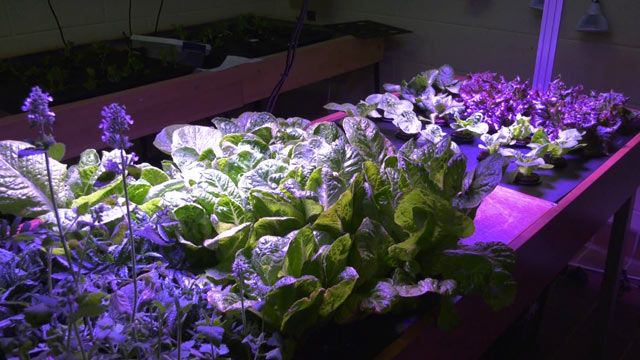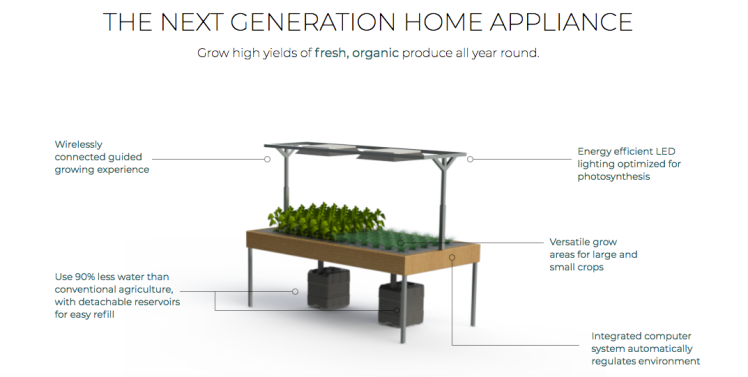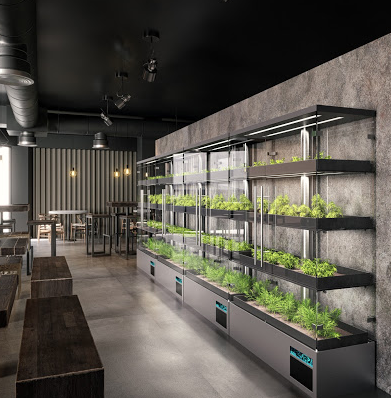Babylon Micro-Farms, a hydroponic home appliance company launched by University of Virginia undergraduate students, offers a sustainable alternative to industrialized agriculture. Hydroponics gardening envisions a closed–loop food production system that has the potential to transform the way we produce and consume food. With the intention of producing fresh fruit and vegetables within the UVA dining facilities, Alex Olesen teamed up with three other students to create compact hydroponic farm prototypes. These highly personalized hydroponic systems (only 6 feet wide and 6 feet tall) offer consumers the ability to produce food within their own homes, as opposed to purchasing lettuce that has traveled thousands of miles to arrive on the shelf.
Although Babylon Micro-Farms is not an open-source company, Babylon’s mission to transform our current energy–intensive food production model will require widespread community collaboration. Building the capacity to grow food in local and urban environments relies on deep–seated infrastructural change, which can be brought about by a common, rapidly evolving technology platform. For example, Tesla’s co-founder Elon Musk realized that sharing the designs of his electric vehicles would expand the market. Musk recognized that the only way to compete with gasoline-powered car companies was to stimulate innovation in the electric vehicle market. Sharing his patents “helps Tesla by getting more electric vehicles on the market, meaning more overall infrastructure that makes Tesla cars more valuable.”
In a similar vein, the world would benefit from collaboration between hydroponic companies such as Babylon Micro-Farms. In order to revolutionize our food production system –minimizing our greenhouse gas emissions and using less water, pesticides, and land –we need to install core infrastructure that would support a sustainable food supply chain. For most urbanites, food is an abstract concept until it arrives on their plate. As author and farmer Wendell Berry explains, if one gained one’s whole knowledge of food from advertisements and grocery stores, “one would not know that the various edibles were ever living creatures, or that they come from the soil, or that they were produced by work.” Our mass food production system alienates the consumer from biological processes, and in order to “reclaim responsibility for one’s own part in the food economy,” we need companies sharing their design platforms so we can catalyze transformative change.



https://www.babylonmicrofarms.com/
http://www.nbc29.com/story/37578550/babylon-micro-farms-02-23-2018
